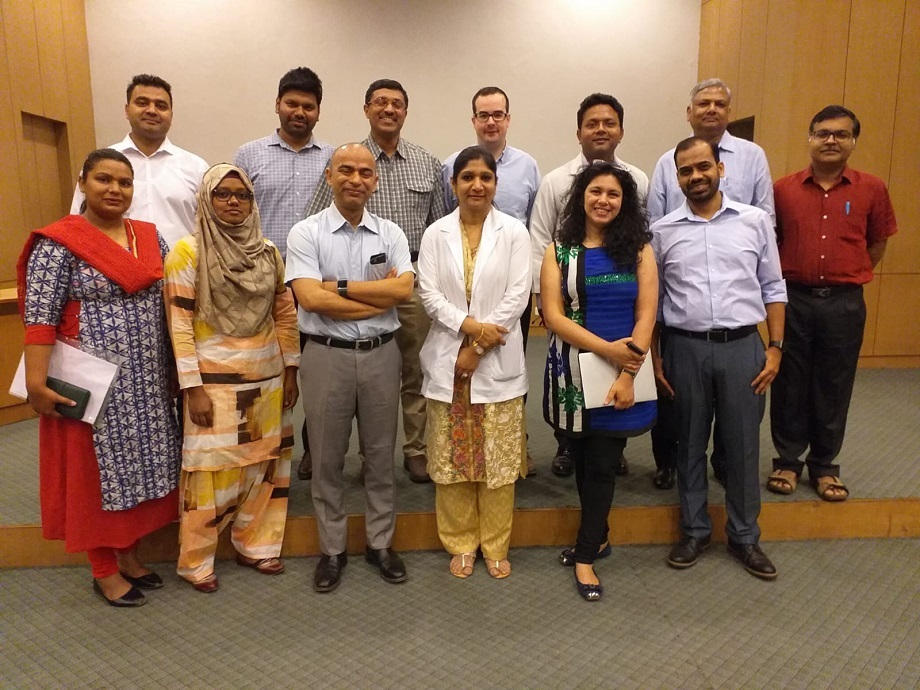University of Birmingham experts joined medical professionals in India to set up an innovative research centre that will help to improve care for surgical patients. Dmitri Nepogodiev and Sohini Chakrabortee travelled from Birmingham to Punjab to help launch the first ever surgical Research Hub in India at the Christian Medical College and Hospital (CMC) Ludhiana, and to deliver a training workshop. They co-led the workshop along with surgeons from India, Dr Dhruv Ghosh (CMC Ludhiana) and Dr Rohin Mittal (CMC Vellore).
Besides members from the Hub, the event was also attended by representatives from other hospitals (Spokes) in India that will be associated with the research studies of the Unit.
Among the first studies to be launched at the Hub will be the surgical trial looking at interventions to reduce the – often devastating – impact of post-surgical infection (FALCON), as well as a study to evaluate access to healthcare for patients requiring surgery.
Dr Nepogodiev commented: “Each year, 4.2 million people die within 30 days of an operation, half of these deaths occurring in low- and middle-income countries such as India. Surgical Site Infection (SSI) is the most common surgical complication and this workshop represents an important step forward in reducing SSI in India and other countries.
“SSI can have a catastrophic impact on patients in India, driving many people into poverty as they struggle to work and pay healthcare bills. Reducing SSI has huge benefits as patients suffer less and save money, whilst being able to return to work or school faster.
“Patients also need fewer and shorter courses of antibiotics, helping to reduce global antimicrobial resistance, whilst hospitals can reduce costs and discharge patients earlier, preventing re-admissions.”
Hub Lead Dr Dhruv Ghosh commented: “There is a critical need to improve surgical infrastructure across India and beyond in order to improve patient care and reduce the devastating impact of a lack of surgical care. We are delighted to link with our partners at the University of Birmingham in this latest stage of a global health research initiative that has the potential to save many thousands of lives in India.”


Leave A Comment